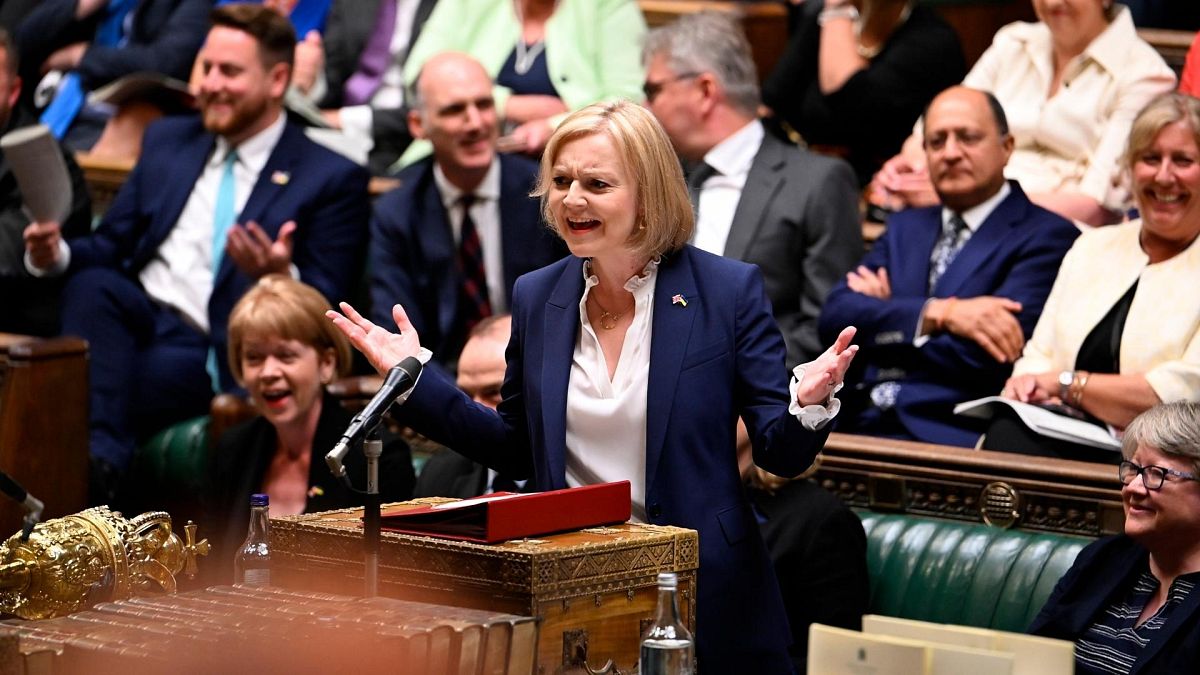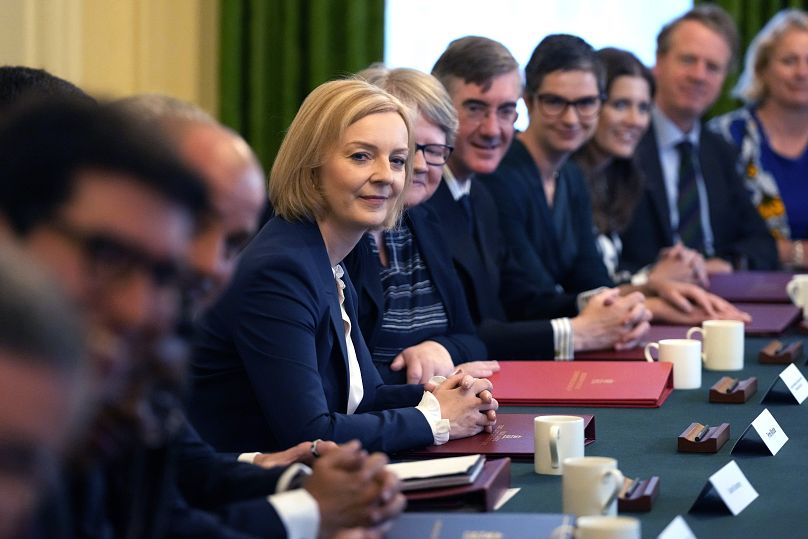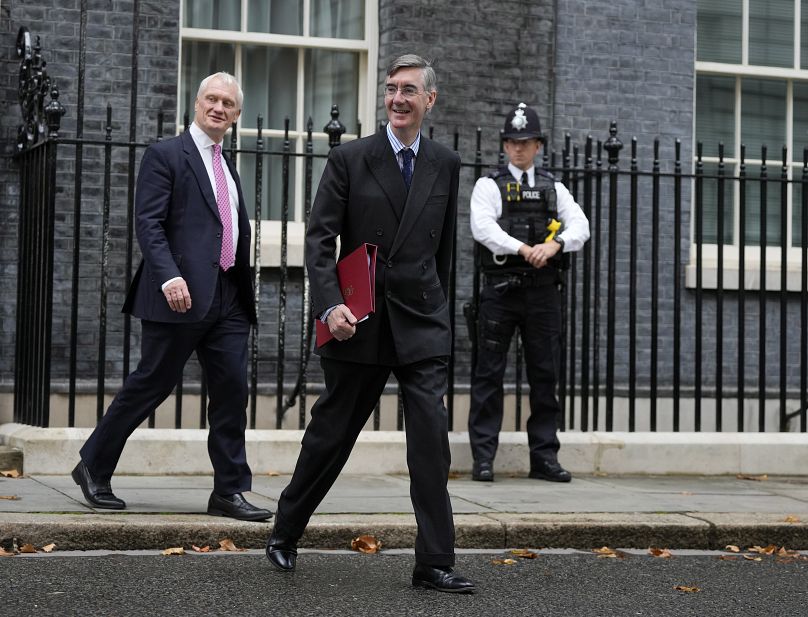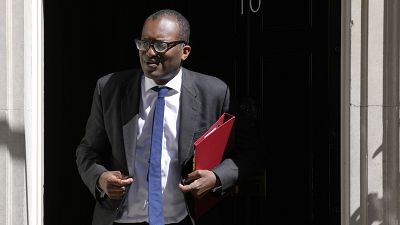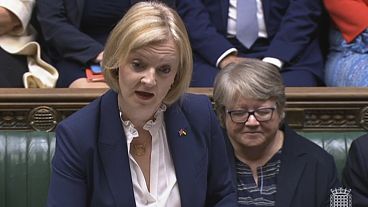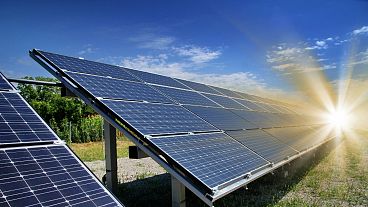Liz Truss comes into power as the UK faces the energy crisis - a problem deeply tied to the polluting fossil fuels the country uses to produce energy.
Liz Truss became the UK’s new Prime Minister on Tuesday and inherited the looming cost of living crisis.
Bills have skyrocketed over the last few months and inflation is rising - so tackling the energy crisis is at the top of the agenda for the new PM.
But environmental policies and pledges made by previous governments have also been a hot topic during the leadership race. Since the energy and climate crises are unavoidably interconnected, tackling one often impacts the other.
So, as Prime Minister Liz Truss takes over from Boris Johnson, here’s what we know so far about her climate commitments.
Increasing the UK’s gas production to fight rising energy bills
In her first few hours on the job, Truss began prioritising measures to bring down high energy costs in the face of the cost of living crisis.
After promising "immediate action", Truss announced on Thursday 8 September a cap on prices that will freeze the average UK energy bill at £2,500 (€2890) for the next two years. The government will pay energy suppliers to cover the gap between the cap and market prices from 1 October.
It won't be funded by a windfall tax, however, as Truss has flatly refused to fund the scheme in this way.
"We will not be giving in to the leader of the opposition who calls for this to be funded by a windfall tax," she said in the House of Commons.
"That would undermine the national interest by undermining the very investment we need to secure home-grown energy supplies."
Instead, part of these efforts to bring soaring energy costs down also includes increasing the production of oil and gas in the country. Truss has suggested that she will push to extract more of these fossil fuels from the North Sea and lift a ban on fracking.
But the government’s independent advisors on climate and infrastructure said on Wednesday that this plan won’t work.
“The UK cannot address this crisis solely by increasing its production of natural gas,” Lord Deben, chair of the Committee on Climate Change and Sir John Armitt, chair of the National Infrastructure Committee wrote in a joint letter to Truss.
“Greater domestic production of fossil fuels may improve energy security, particularly this winter. But our gas reserves - offshore or from shale - are too small to impact meaningfully the prices faced by UK consumers.”
They point out that renewables are the cheapest form of electricity generation adding that onshore wind and solar can be deployed faster, reducing the country’s reliance on gas.
Jacob Rees-Mogg becomes Britain’s new business and energy secretary
Conservative MP Jacob Rees-Mogg has been appointed business and energy secretary in Truss’s first cabinet. It puts him in charge of navigating the UK’s climate and energy strategy - including the plan to reach net zero.
The appointment is controversial as Rees-Mogg has in the past dismissed climate science as “alarmism”, describing environmentalists as “doomsayers”. He has also criticised the closure of coal power stations, blaming the move away from fossil fuels for high energy prices.
Rees-Mogg has recently said that “every last drop” of oil and gas should be extracted from the North Sea, despite the UK’s pledge to reach net zero by 2050.
“2050 is a long way off - we’re not trying to reach net zero tomorrow,” he said in April.
These comments have left some critics sceptical about the appointment.
“Putting someone who recently suggested, ‘every last drop’ of oil should be extracted from the North Sea in charge of energy policy is deeply worrying for anyone concerned about the deepening climate emergency, solving the cost of living crisis and keeping our fuel bills down for good,” says David Timms, head of political affairs at Friends of the Earth.
Extracting more fossil fuels is not a solution to the energy crisis, he adds, since our reliance on oil and gas is what sent bills soaring in the first place.
“We need a forward-looking, modern energy strategy based on better home insulation and unleashing the full potential of the UK’s homegrown renewables power - not one rooted in dirty fossil fuels of the past.”
Truss vows to remove green energy levies
During her campaign, Truss vowed that she would suspend green levies that go towards improving the energy efficiency of homes and businesses by improving insulation. The levies also fund research into renewables in an effort to guarantee the UK’s future energy security.
Currently, they cost the average Brit around £153 (€177 ) a year but have made some headway in cushioning the blow from the increase in natural gas prices.
Truss is hoping that the move will reduce energy bills. But energy bosses have slammed the idea, with the Michael Lewis, chief executive officer of E.ON saying in August that it was “absolutely the wrong thing to do”.
“Yes, it has a short term impact on bills, but long term it's a catastrophe because it’s those levies that are driving renewables that are driving energy efficiency.”
Martin Lewis, founder of Money Saving Expert, said it was like “sticking a plaster on a gaping wound” for most consumers as many face an increase of thousands of pounds.
Truss pledges to ‘double down’ on net zero by 2050
Calling herself “an environmentalist before it was fashionable”, Truss has pledged to “double down” on the UK’s target to reach net zero emissions by 2050.
The new UK Prime Minister said during her campaign that she will conduct a review of the current policies to ensure the country is meeting its climate commitments in the most efficient way. There’s a strong focus on doing this without passing on unnecessary costs to consumers.
A group of 29 MPs and parliamentarians from all political parties urged Truss to recommit to this pledge in a letter on Wednesday.
“We hope that as prime minister you will continue to support measures to reach net zero by 2050 or sooner in this country,” they wrote in a letter seen by UK newspaper the Guardian.
The group asks Truss to get “the UK on track to meet its legally binding carbon budgets”, boost renewable energy, increase home insulation and back the government’s goals for protecting nature.
The UK’s independent Climate Change Committee (CCC) also wrote to the new Prime Minister welcoming her support of the UK’s net zero target.
The CCC, however, did also add that addressing the UK’s dependency on gas - rather than increasing it - is the best way out of the climate and energy crises.
